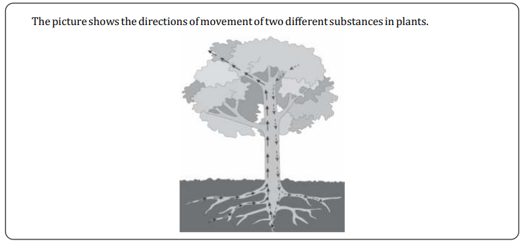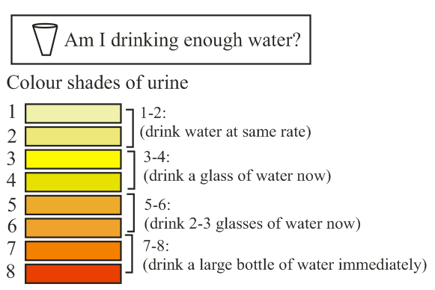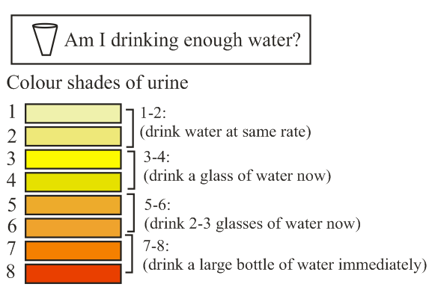NCERT Solutions for Chapter: Transportation in Animals and Plants, Exercise 1: Exercise
NCERT Science Solutions for Exercise - NCERT Solutions for Chapter: Transportation in Animals and Plants, Exercise 1: Exercise
Attempt the practice questions on Chapter 11: Transportation in Animals and Plants, Exercise 1: Exercise with hints and solutions to strengthen your understanding. Science Textbook of Competency Based Questions for Class VII solutions are prepared by Experienced Embibe Experts.
Questions from NCERT Solutions for Chapter: Transportation in Animals and Plants, Exercise 1: Exercise with Hints & Solutions

What do the two types of arrows in the picture show?

The picture shows different colour shades of urine.

Which colour shade indicates that the body is well hydrated?

Under normal conditions, human urine contains 95% water and 5% waste products. What would be the percentage of waste products in a darker shade of urine?
Which of these statements is correct?
The table shows the heart rate of a student before and after different types of exercise.
| Number of heart beats per minute | ||
| Before exercise | Just after exercise | |
| Exercise 1 | 92 | 135 |
| Exercise 2 | 88 | 105 |
| Exercise 3 | 90 | 155 |
| Exercise 4 | 92 | 115 |
Which exercise resulted in the maximum change in heart rate?
The normal heart rate for an adult human is 60-100 beats per minute. Why does the heart rate vary among individuals?
Differentiate between the veins and arteries.
State the difference between arteries and veins.
